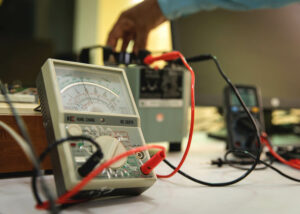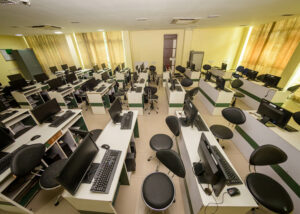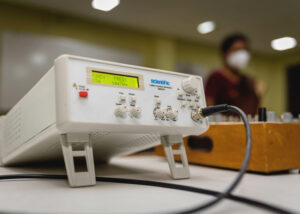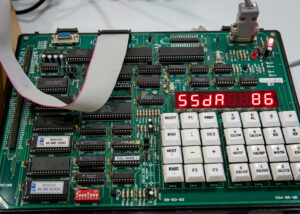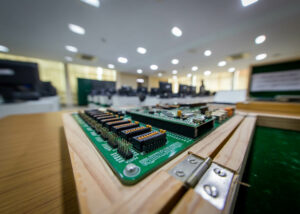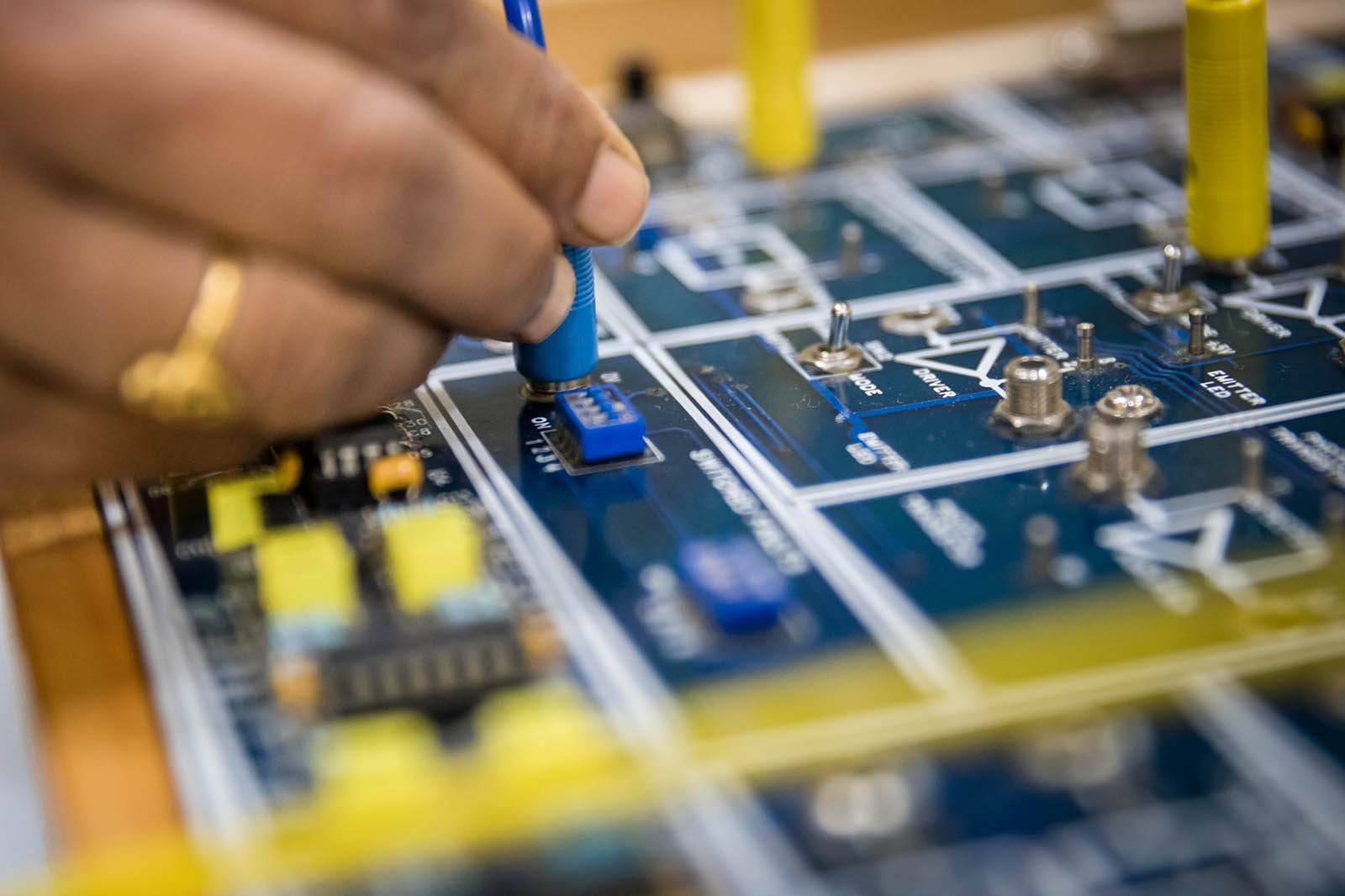B. Tech in Electronics and Computer Science Engineering
KIIT School of Electronics Engineering houses “B.Tech. in Electronics and Computer Science Engineering ” as its prime graduate program, which offers world class education through qualified and experienced faculties from IISC, IITs, NITs, Foreign Universities and other reputed institutes. Faculty members available in the school are highly expertise in the field of Image Processing, Soft Computing, Machine Learning, IoT, Computer Networks, Optical networks, Network security, apart from subjects like electronics engineering, embedded systems, signal processing etc. This branch of Engineering Technology conceptualizes the fundamentals for careers in multiple companies like Amazon, Delloite, Tech Mahindra, Mindtree, Infosys, Cognizant, TCS, HCL, Google, Wipro, IBM, Microsoft and many more. It also caters to Research potential in recent areas like machine learning, artificial intelligence, IOT, robotics, Bioinformatics, Computational Intelligence, synthesis and fabrication. Laboratories catering to academic requirements of electronics and allied branches at undergraduate level i.e. analog and digital electronics lab, communication engineering lab, microprocessor and micro-controller lab, signal processing lab, microwave and antenna lab, wireless communication and networking lab, VLSI and embedded system lab, measurements and instrumentation lab, process control labs. Additionally, quick and appropriate technical support for teaching and live projects are available. National Instruments’ Center of Excellence established in School of Electronics to facilitate student research. Design and Thinking Lab available in School of Electronics to facilitate live projects in the areas of IoT, Machine Learning and Augmented Reality. E-cell, a student society in School of Electronics to promote technological activities among students outside their regular curriculum. B.Tech. Electronics and Computer Science Engineering students of KIIT enjoy multiple job offers and high percentage of corporate and academic placements through the campus interviews with the support of KIIT Training and Placement cell and consistent guidance of expert faculties.
Eligibility Criteria :
- Candidates completed or appearing 10+2 examination or equivalent are only eligible to apply for B.Tech(4 Years) course of the University.
- They should have studied in regular full-time formal education during their schooling/college.
- Pass in 10 +2 or its equivalent with at least 60% marks in Physics, Chemistry, and Mathematics taken together.
Programme Educational Objectives (PEOs)
The B. Tech programme in Electronics and Computer Science Engineering aims to prepare the graduates with the following objectives:
- Lead a successful career in industries or undertake entrepreneurial endeavors and provide solutions
in the areas of system design, analysis of algorithms & data, computer networking, and allied areas
of Electronics and Computer Science Engineering or pursue advanced studies. - Utilize their knowledge, skills and resources to design, invent and find creative and innovative
solutions to engineering problems in a multidisciplinary work environment following appropriate
ethical practices. - Develop attitude in lifelong learning, apply and adapt new ideas as the technology evolves.
Programme Outcomes (POs):
a) Engineering knowledge: Ability to apply the knowledge of mathematics, science, engineering
fundamentals, and an engineering specialization to the solution of complex engineeringproblems.
b) Problem analysis: Ability to identify, formulate, review research literature, and analyze
complex engineering problems reaching substantiated conclusions using first principles of
mathematics, naturalsciences, and engineering sciences.
c) Design/Development of solutions: Ability to design solutions for complex engineering
problems and design system components or processes that meet the specified needs with
appropriate consideration for the public health and safety, and the cultural, societal, and
environmental considerations.
d) Conduct investigations on complex problems: Ability to use research-based knowledge and
research methods including design of experiments, analysis and interpretation of data, and synthesis
ofthe information to provide valid conclusions.
e) Modern tool usage: Ability to create, select, and apply appropriate techniques, resources, and
modern engineering and IT tools including prediction and modeling to complex engineering
activities with an understanding ofthe limitations.
f) The engineer and society: Ability to apply reasoning informed by the contextual knowledge to
assess societal, health, safety, legal and cultural issues and the consequent responsibilities relevant
to the professional engineering practice.
g) Environment and sustainability: Ability to understand the impact of the professional
engineering solutions in societal and environmental contexts, and demonstrate the knowledgeof, and
need forsustainable development.
h) Ethics: Ability to apply ethical principles and commit to professional ethics and responsibilities and
norms ofthe engineering practice.
i) Individual and team: Ability to function effectively as an individual, and as a member or leader in
diverse teams, and inmultidisciplinary settings.
70
j) Communication: Ability to communicate effectively on complex engineering activities with the
engineering community and with society at large, such as, being able to comprehend and write
effective reports and design documentation, make effective presentations, and give and receive clear
instructions.
k) Project management and finance: Ability to demonstrate knowledge and understanding of the
engineering and management principles and apply these to one’s own work, as a member and leader
in a team, tomanage projects and inmultidisciplinary environments.
l) Life-long learning: Ability to recognize the need for, and have the preparation and ability to
engage in independent and life-long learning in the broadest context oftechnological change.
Programme Specific Outcomes (PSOs):
The programme specific outcomes are:
a) Ability to design and develop systems using suitable hardware and software tools for industrial data
management and information communication requirements.
b) Ability to conduct research in networking, software engineering, embedded system, and related
technologies.
c) Ability to design and develop complex products using suitable tools for societal and engineering
needs with skills to communicate effectively in groups.


